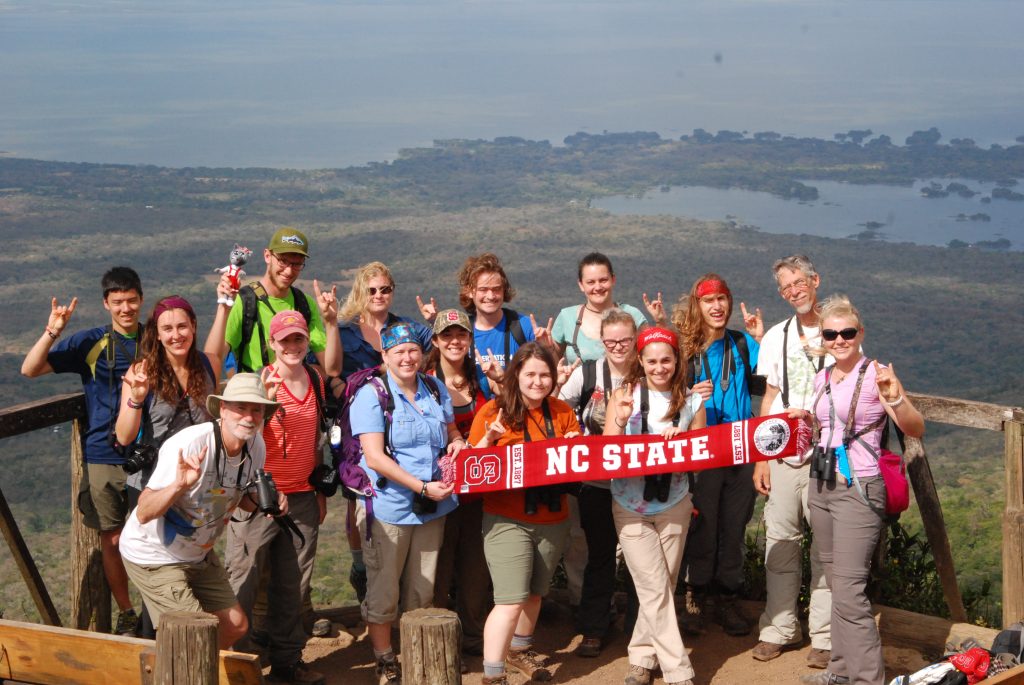Teaching

As an undergraduate student, I excelled at short-term memory of concepts and terms, but I retained only those that were applied during the class or shortly thereafter. Hence, I understand the importance of discussion or activities that allow students to make connections between class information and real-world scenarios. For example, in my Wildlife Habitat Management course I require students to complete a stewardship plan in which they: 1) assess the conditions of a property for target wildlife based on a realistic landowner scenario; and 2) make practical recommendations for meeting the landowner objectives. In cases where lab sections are not feasible, I have used creative approaches to teaching with anecdotes and classroom activities to put classroom theory in an applied light.
Fisheries, Wildlife, and Conservation Biology Program
The Fisheries, Wildlife, and Conservation Biology Program at NCSU is a multi-disciplinary program that is shared by the Colleges of Natural Resources, Veterinary Medicine, and Agriculture and Life Sciences. The Program has over 35 faculty members from a variety of departments, approximately 250 undergraduates in the 3 concentrations, and over 40 graduate students. In 2016, the Program was rated 2nd nationally in terms of research productivity. As past Program Coordinator, I led efforts to build the Program’s reputation internal and external to the University, direct curricular changes, foster a sense of community within the undergraduate and graduate student body, and grow cooperation between faculty and students and external collaborators.
Courses Taught
FW 404/FW 595 Wildlife Habitat Management – I teach the 3-credit course each fall semester and it is required for students in the Wildlife Science and Forest Management curricula. The course emphasizes the effects of forest management practices, including timber harvest, prescribed burning, and plantation silviculture, on wildlife populations, but extends beyond forested systems to include management of ag-ecosystems, wetlands, and prairies and old-field communities. The class also includes a focus on the connection between plants and animals, and all students are required to create a collection of plants important to wildlife as food and/or cover. PDF Sample Syllabus
FW 264 Forest Wildlife – The 1-credit , week-long summer course is required of students enrolled in the Forest Management curriculum. The course covers the identification and natural history of forest wildlife, especially birds. I emphasize the effects of silviculture on habitat for various wildlife and the importance of integrated management for both timber and wildlife resources. At the end of the week, forest management and wildlife biology majors work together to develop an integrated timber and wildlife management plan for a single stand. PDF Sample Schedule
FW 405/FW 595 Tropical Wildlife Ecology – With assistance from EcoQuest Travels, I developed the study abroad course that includes an 11-day trip to Central or South America. The 3-credit course is offered during spring break of even numbered years (2008, 2010,…) and was designed to allow students to experience the natural history and culture of Latin America with special emphasis on community-based tourism and tropical wildlife ecology. Student learning is facilitated by hands-on collection of bird data using mist nets, small mammal data using live traps, and larger mammal data using camera traps. We visit different eco-tourism destinations and interact with the local people in formal and informal settings throughout the trip. Students attend 8-9 class sessions on campus before and after the trip. PDF Sample Syllabus [ 2008 Photos and 2010 Photos and 2012 Photos and 2014 Photos and 2016 Photos and 2018 Photos and 2020 Photos]
FOR 533 Fire Ecology – Each fall semester, I co-teach this 3-credit graduate course with Drs. Joe Roise and Katie Martin. The course was developed with assistance from DELTA staff and resources on the NC State campus. The DELTA project was funded to help us bring the field components of the course into the online environment using novel strategies like a 360° virtual field tour. The course covers the range of topics related to fire ecology, including fire behavior, fire history, plant and animal response to fire, and restoration using prescribed fire. The course is relevant and available to traditional students and working professionals around the southeastern US.
